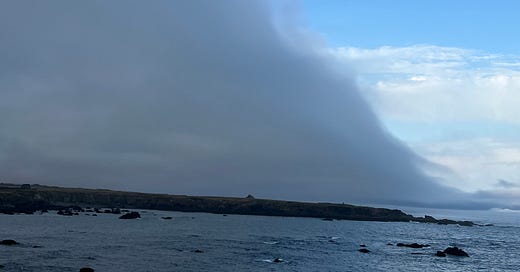Amanda Knox is an American woman who was arrested in 2007 for a murder she did not commit. She spent four years in an Italian jail and then lived through another four years waiting to see if the Italian courts were going to reverse her acquittal. I was not familiar with her until I listened to a podcast interview. The podcast episode more or less filled in the details of her arrest and incarceration while also introducing me to an articulate, thoughtful, and compassionate author.
Her first memoir detailed the arrest, trial and subsequent years in prison but I was more interested in the memoir that was featured on the podcast. I requested it (Free: My Search For Meaning ) from the library and was moved by her story. That memoir details how Ms Knox was able, somehow, to ascribe meaning to this unbelievable chain of events in her life. She’d been a twenty year old college kid, just starting her college year abroad and living the wide-eyed life of a kid, when she was arrested for that murder. She wrote the book 15 years later with the wisdom that only comes to people who have been traumatized and treated unfairly by life.
What really got me was this. Amanda included a letter she wrote to someone in which she made this observation: "I am grateful for my experience [false conviction and imprisonment]...I am grateful because I learned things about myself that I never would have known: both how weak and how vulnerable I am, but also how strong I am... This experience crystalized for me my core values: curiosity, compassion, and courage..... we cannot change the past , but we can change the future. And the mistakes of our past are the opportunities of our future." What a way to look at the tragedies that befall everyone in life! When tough times happen, it behooves a person to look for how that experience will enrich you.
Last week I also read a feature article in The Atlantic that was both informative and inspiring. The story focused on research behind severe brain injury. I was fascinated by new developments in assessing patients’ abilities to transcend what was formerly referred to simply as a “vegetative” state. Several patients were profiled but the primary story centered on Ian, a 17 year old man who, in 1986, had been diagnosed as being in a “vegetative” state after a horrific car accident. From the very beginning of his treatment, his mother had insisted that every effort be made to keep him alive, no matter in what cognitive state that would leave him. The lengthy article details both the advances made in the care of severely brain damaged people but also the specific advances that Ian had made over the 40 years since his accident. Ian’s family, especially mother and brother, have been able to provide care and caregivers for Ian and, beyond that, they have created and sustained a community that serves both Ian and also the community members. His mom clearly states that Ian’s life story is not a sad story, that much good has come to him and because of him.
Both of these stories have reminded me that often we humans assume some incident, some experience, is terrible. And it might well be terrible in that moment. But we have no idea why things happen. We can’t accurately predict what happens next in life. If I were Amanda, would I have been able to find value in the years spent in a prison? If I were Ian or his family, could I ever have seen his life as anything but tragically flawed? At the moment, I can’t say. But I do learn from reading these kinds of accounts. I’m also thinking about the current occupant of the White House and the destruction and havoc that he is creating. Is this necessarily going to end badly? I don’t know but stories like Amanda’s and Ian’s open my mind to other possibilities.





Yes! If we choose to recognize it, I think wisdom is ceded to us far more in adversity than it is in comfort, which makes sense. It’s evolutionary, a survival mechanism. In the modern age, people who find wisdom, knowledge, or purpose in adversity are, I think, those who appreciate life the most. I hope that we who are most concerned with our current political dilemma will find the drive, wisdom, and purpose to make a better America - as soon as we’ve removed the current malignancy. That’s what I see as our lesson, and we will be the wiser for it.
There is a lot to be said for simple comfort and security, though.
In something of the same way as my disdain for winter heightens my appreciation of spring, I’m sure adversity of pretty much any kind makes us appreciate even more what is good by comparison. Even if, as is too often the case, the cause of the adversity is still present.